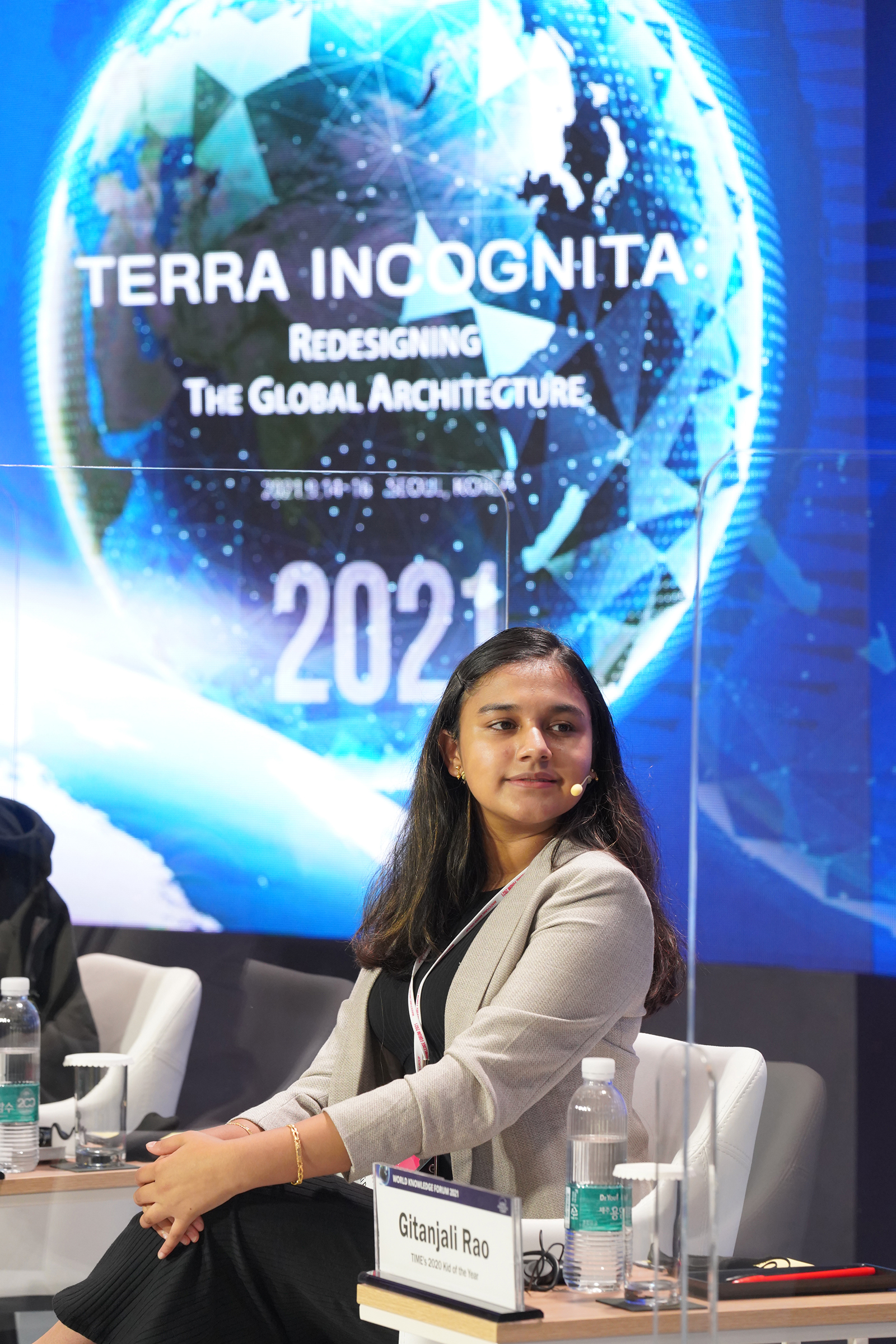
Gitanjali Rao was TIME’s first kid of the Year, named in 2020 for her work as a scientist and leader. Now 16, Rao remains focused on her research and on expanding access for kids to use their unique perspectives to innovate as well. She spoke with TIME about what she has done with her title.
It’s been a year since you were named TIME’s Kid of the Year. What have you been up to?
It has been an absolute whirlwind of emotions. I’m glad that it has given me a more impactful voice.
I work very closely with the Maddox Jolie-Pitt Foundation and Angelina Jolie, and I worked with students in Cambodia for their workshop. Also, I have spoken at so many conferences now. I’ve talked on the future of education, education inequality, the use of tech for problem solving, the need for youth in the workforce, women in STEM—all sorts of things.
Kindly [Rao’s app to monitor cyberbullying], in partnership with UNICEF, is now a solution that can be used all over the country. And it is the same mission, same goal—it’s just modified to be more clean, and provide more resources for students.
My newest project is looking at detecting parasites in water in third world countries. I’m thinking of going into biogenetics, product development, and public administration—some combination of the three.
Last year, you reached your goal of mentoring 30,000 students through your innovation workshops. How is that going?
I’m at over 57,000 students right now. I also wrote a book that was released in March 2021. Now it’s available in five languages all over the world. I’ve raised more than $70,000 to help refugee camps and Title I schools with purchasing books as well. And, in partnership with Transformation Ghana, I’ve provided books to high schools there as well. As a National Geographic Young Explorer and the laureate for the Young Activists Summit in Geneva, I was able to improve the Makerspace in the Kakuma refugee camp, providing them with more laptops and printers and iPads and ways that they can improve their own innovation careers. On top of that, I’ve also been really passionate about mentoring students for challenges, so that they have the competition to bring their ideas to life.
Why do you want to especially mentor kids in other countries?
It’s weird to think that I have privileges that a lot of other people don’t. I believe that innovation should have an equal playing field. We shouldn’t put a price on coming up with ideas. And that’s exactly why I’m trying to help out some of the people who do come up with an amazing idea but sometimes don’t know where to start, or don’t have the resources to.
What’s next for the year ahead?
Honestly, I’m looking forward to doing some more research and getting back into the lab. I want to get more into this era of personalized medicine. And I’m hoping to develop a more in-depth K-12 curriculum. At the end of the day, the biggest thing that I want to do is look at inequality in education, and how we can create an education system that suits everyone.
How are you going to do all of that while keeping up with high school?
Thankfully, I’m almost done with high school. Just three semesters left. And, you know, managing college apps and things like that is a lot. But I strongly believe that if you’re doing everything that you want to do—not what you need to do—it makes everything that much easier to balance out.
More Must-Reads From TIME
- The 100 Most Influential People of 2024
- Coco Gauff Is Playing for Herself Now
- Scenes From Pro-Palestinian Encampments Across U.S. Universities
- 6 Compliments That Land Every Time
- If You're Dating Right Now , You're Brave: Column
- The AI That Could Heal a Divided Internet
- Fallout Is a Brilliant Model for the Future of Video Game Adaptations
- Want Weekly Recs on What to Watch, Read, and More? Sign Up for Worth Your Time
Write to Raisa Bruner at raisa.bruner@time.com